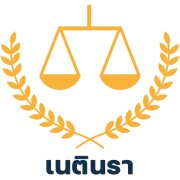ทนายความ แฟรนไชส์ ที่ดีที่สุดใน ประเทศไทย
แบ่งปันความต้องการของคุณกับเรา รับการติดต่อจากสำนักงานกฎหมาย
ฟรี ใช้เวลา 2 นาที
หรือปรับแต่งการค้นหาของคุณโดยเลือกเมือง:
รายชื่อทนายความที่ดีที่สุดใน ประเทศไทย
คู่มือกฎหมายเขียนโดย SIAM LEGAL INTERNATIONAL:
- Defamation Laws in Thailand: Criminal Charges and Civil Suits
- The State of Thailand’s Long-Term Resident (LTR) Visa Program in 2025
- The Penalties Of Not Filing Your Income Tax Return As A Foreigner In Thailand
คู่มือกฎหมายเขียนโดย Smart Legal Solutions:
- Main Legal Measures to Protect Foreign Investment in Thailand
- The importance of the geographical indications for the Thai economy
1. เกี่ยวกับกฎหมายแฟรนไชส์ในประเทศไทย
แฟรนไชส์ในประเทศไทยอยู่ภายใต้กรอบกฎหมายที่ดูแลความเป็นธรรมและความโปร่งใสระหว่างผู้ให้แฟรนไชส์กับผู้รับสิทธิ์ โดยมุ่งเน้นการเปิดเผยข้อมูล การกำกับดูแลสัญญา และการคุ้มครองผู้บริโภค
ระเบียบหลักมักเกี่ยวข้องกับการเปิดเผยข้อมูลก่อนลงนาม สัญญาแฟรนไชส์ และการป้องกันการกระทำที่ไม่เป็นธรรมต่อผู้ลงทุน
ข้อเท็จจริงสำคัญ คือกฎหมายแฟรนไชส์ในไทยไม่ได้มีเพียงกฎระเบียบท้องถิ่นเดียว แต่ยังประสานกับกฎหมายเกี่ยวกับคุ้มครองผู้บริโภคและการแข่งขันทางการค้า
การทำความเข้าใจลึกๆ เกี่ยวกับสัญญาแฟรนไชส์และกระบวนการต่ออายุหรือยุติสัญญา จำเป็นต้องปรึกษาทนายความที่มีประสบการณ์ในด้านนี้
2. ทำไมคุณอาจต้องการทนายความ
เลยจากการเริ่มต้นธุรกิจแฟรนไชส์ คุณอาจต้องทนายความในสถานการณ์จริงต่อไปนี้
- ตรวจสอบสัญญาก่อนลงนาม: มีข้อกำหนดเกี่ยวกับค่าแฟรนไชส์ ค่ารอยัลตี้ และกองทุนตลาดหรือไม่ และเงื่อนไขการต่ออายุเป็นอย่างไร
- กรณีผู้ลงทุนเป็นชาวต่างชาติ: ต้องพิจารณาข้อจำกัดตามพระราชบัญญัติต่างด้านครอบคลุมการถือหุ้นและใบอนุญาตประกอบธุรกิจ
- ข้อพิทาพทเกี่ยวกับสิทธิแบรนด์: ปัญหาลิขสิทธิ์เครื่องหมายการค้าหรือการโอนสิทธิ์แฟรนไชส์
- กรณีมีข้อเรียกร้องจากผู้บริโภค: กรอบกฎหมายคุ้มครองผู้บริโภคมีข้อบังคับอะไรบ้างที่อาจกระทบสัญญา
- กรณีต้องโอนถ่ายสิทธิ์/ขายแฟรนไชส์: มีเงื่อนไขการโอนสิทธิ์ให้กับบุคคลใหม่หรือไม่และต้องมีขั้นตอนอย่างไร
3. ภาพรวมกฎหมายท้องถิ่น
พระราชบัญญัติแฟรนไชส์ (Franchise Business Act) พ.ศ. 2542 เป็นกรอบกฎหมายหลักที่เกี่ยวข้องกับการเปิดเผยข้อมูลและการกำกับสัญญาแฟรนไชส์ เพื่อคุ้มครองผู้ลงทุนจากข้อมูลที่บิดเบือน
พระราชบัญญัติคุ้มครองผู้บริโภค พ.ศ. 2522 เน้นห้ามการกระทำที่เป็นการฉ้อโกง ความสับสน และการบังคับให้ซื้อสินค้าเกินความจำเป็น ซึ่งมีผลกระทบต่อสัญญาแฟรนไชส์ในแง่ของความเป็นธรรม
พระราชบัญญัติการแข่งขันทางการค้า พ.ศ. 2562 ครอบคลุมการห้ามข้อตกลงร่วมกันที่ลดการแข่งขัน การผูกขาด และพฤติกรรมที่อาจทำให้ตลาดแฟรนไชส์ไม่เป็นธรรม
“ผู้ประกอบการแฟรนไชส์ควรเปิดเผยข้อมูลสำคัญก่อนลงนามสัญญา เพื่อคุ้มครองผู้ลงทุน” - กรมพัฒนาธุรกิจการค้า
อ้างอิง: กรมพัฒนาธุรกิจการค้า (dbd.go.th)
อ้างอิง: กระทรวงพาณิชย์ (moc.go.th)
อ้างอิง: กรมทรัพย์สินทางปัญญา / IP Thailand (ipthailand.go.th)
4. คำถามที่พบบ่อย
อะไรคือข้อมูลที่ผู้ประกอบการแฟรนไชส์ต้องเปิดเผยต่อผู้ลงทุนนอกสัญญาก่อนลงนาม?
โดยทั่วไปข้อมูลรวมถึงค่าแฟรนไชส์เริ่มต้น ค่าใช้จ่ายรายเดือนและรายปี รายละเอียดการสนับสนุนและการฝึกอบรม ระยะเวลาสัญญา เงื่อนไขการต่ออายุ และเงื่อนไขการยกเลิก
อย่างไร จะประเมินสภาพการเงินของแฟรนไชส์ก่อนลงนามได้อย่างมีประสิทธิภาพ?
ตรวจสอบรายการผลประกอบการจริงและข้อมูลอ้างอิงต่อตัวชี้วัดผลประกอบการ อีกทั้งขอเห็นงบประมาณและข้อมูลการตลาด เพื่อประเมินความเสี่ยงและผลตอบแทน
เมื่อไหร่ควรปรึกษาทนายความก่อนเซ็นสัญญาแฟรนไชส์?
ควรปรึกษาก่อนรับเอกสารข้อมูลเปิดเผยและก่อนจ่ายเงินมัดจำ สัญญาใดที่ยังไม่สมบูรณ์ควรปรึกษาก่อนลงนาม
ที่ไหน สามารถค้นหาทนายความเชี่ยวชาญแฟรนไชส์ในประเทศไทยได้บ้าง?
เริ่มจากสหพันธ์สภาทนายความไทยและบริษัทกฎหมายที่มีประสบการณ์ด้านแฟรนไชส์ ตรวจสอบประวัติการดำเนินงานและกรณีศึกษา
ทำไมสัญญาแฟรนไชส์ควรรวมเงื่อนไขการโอนสิทธิ์และการต่ออายุ?
เพื่อหลีกเลี่ยงข้อพิพาทเมื่อมีการเปลี่ยนผู้ถือสิทธิ์ และเพื่อให้ทั้งสองฝ่ายเข้าใจเงื่อนไขการบริหารพื้นที่และบทบาทหลังการต่ออายุ
สามารถยุติสัญญาแฟรนไชส์ก่อนหมดระยะได้อย่างไร?
สัญญามักระบุกรอบระยะเวลาการบอกล่วงหน้า เงื่อนไขยกเลิก และการชดเชย ควรปรึกษาทนายความเพื่อประเมินผลกระทบทางการเงิน
อะไรคือความแตกต่างระหว่าง Franchise Agreement กับ Master Franchise Agreement?
Franchise Agreement มอบสิทธิ์ใช้งานแบรนด์แก่ผู้รับสิทธิ์ในพื้นที่ที่กำหนด ส่วน Master Franchise มอบสิทธิ์ในการขยายแฟรนไชส์ในหลายพื้นที่หรือประเทศ และอาจมีบทบาทในการบริหารเครือข่าย
อย่างไร ข้อตกลงการซื้อวัตถุดิบถูกควบคุมในแฟรนไชส์?
เงื่อนไขควบคุมราคาหรือปริมาณต้องเป็นธรรม ไม่ผูกขาดและสอดคล้องกับข้อบังคับการแข่งขัน หากมีข้อกำหนดผูกขาดควรปรึกษาทนาย
เมื่อไหร่ ควรปรับปรุงสัญญาแฟรนไชส์ตามการเปลี่ยนแปลงกฎหมาย?
เมื่อมีกฎหมายใหม่หรือการตีความศาลที่มีผลกระทบต่อสัญญา ควรปรับปรุงเพื่อไม่ให้สัญญาล้มล้างข้อบังคับ
ที่ไหน ควรตรวจสอบการมีสิทธิทางทรัพย์สินทางปัญญาของแบรนด์?
ตรวจสอบสัญญาอนุญาตแบรนด์ แล้วยืนยันกับ IP Thailand เพื่อให้เข้าถึงการคุ้มครองเครื่องหมายการค้าและลิขสิทธิ์
ทำไมควรมีข้อกำหนดเกี่ยวกับการโฆษณาในแฟรนไชส์?
เพื่อควบคุมคุณภาพและภาพลักษณ์ของแบรนด์ในหลายสาขา และป้องกันการโฆษณาที่อาจสร้างความเสียหายหากไม่สอดคล้องกับกลยุทธ์องค์กร
สามารถเปลี่ยนผู้ดำเนินการในพื้นที่แฟรนไชส์เดิมได้หรือไม่?
โดยทั่วไปต้องขอความยินยอมจากผู้ให้แฟรนไชส์ตามเงื่อนไขสัญญา การเปลี่ยนผู้ดำเนินการอาจมีข้อจำกัดหรือค่าธรรมเนียม
อะไรคือข้อควรระวังด้านภาษีเมื่อมีรายได้จากแฟรนไชส์?
ต้องพิจารณภาษีเงินได้นิติบุคคล ภาษีมูลค่าเพิ่ม และภาษีหัก ณ ที่จ่าย หากไม่แน่ใจควรปรึกษาฝ่ายภาษีหรือทนายที่เชี่ยวชาญ
5. ทรัพยากรเพิ่มเติม
- กรมพัฒนาธุรกิจการค้า (DBD) - แหล่งข้อมูลการเปิดธุรกิจและแฟรนไชส์ พร้อมบริการจดทะเบียนและแนวทางด้านกฎหมายธุรกิจ: https://www.dbd.go.th
- กระทรวงพาณิชย์ - นโยบายการค้าระหว่างประเทศ และข้อมูลด้านการคุ้มครองผู้บริโภค: https://www.moc.go.th
- กรมทรัพย์สินทางปัญญา / IP Thailand - แนวทางการคุ้มครองเครื่องหมายการค้าและลิขสิทธิ์ของแบรนด์แฟรนไชส์: https://www.ipthailand.go.th
6. ขั้นตอนถัดไป
- กำหนดเป้าหมายแฟรนไชส์ของคุณ ระบุแนวทาง กลุ่มลูกค้า และพื้นที่เป้าหมาย ภายใน 1 สัปดาห์
- รวบรวมเอกสารที่เกี่ยวข้อง เตรียมข้อมูลธุรกิจ ค่าใช้จ่าย และเงื่อนไขเบื้องต้นของสัญญาแฟรนไชส์ ภายใน 1-2 สัปดาห์
- ค้นหาทนายความที่เชี่ยวชาญแฟรนไชส์ ตรวจสอบประสบการณ์และกรณีศึกษาอย่างน้อย 2-3 firms ในพื้นที่ของคุณ ภายใน 2-4 สัปดาห์
- ปรึกษาทนายความและขอร่างสัญญาตัวอย่าง ให้ทนายตรวจสอบประเด็นสำคัญ เช่น เงื่อนไขการยุติและการโอนสิทธิ์ ภายใน 1-2 สัปดาห์
- ขอเอกสารเปิดเผยข้อมูลจากผู้ให้แฟรนไซ์ (FDD) ตรวจดูรายละเอียดการลงทุน รายการค่าใช้จ่าย และเงื่อนไขการชำระเงิน ภายใน 1-3 สัปดาห์
- เจรจารายละเอียดสัญญา ปรับเงื่อนไขเรื่องพื้นที่ ระยะเวลาคุ้มครอง และการชดเชยให้เป็นธรรม ภายใน 2-4 สัปดาห์
- สรุปข้อสรุปและตัดสินใจ ประเมินความคุ้มค่า ความเสี่ยง และความสอดคล้องกับกฎหมาย ก่อนลงนามจริง
Lawzana ช่วยคุณค้นหาทนายความและสำนักงานกฎหมายที่ดีที่สุด ใน ประเทศไทย ผ่านรายชื่อผู้เชี่ยวชาญด้านกฎหมายที่มีคุณสมบัติเหมาะสมที่คัดสรรและตรวจสอบล่วงหน้า แพลตฟอร์มของเรานำเสนอการจัดอันดับและโปรไฟล์โดยละเอียดของทนายความและสำนักงานกฎหมาย ช่วยให้คุณเปรียบเทียบตามสาขากฎหมาย รวมถึง แฟรนไชส์ ประสบการณ์ และความคิดเห็นของลูกค้า
แต่ละโปรไฟล์ประกอบด้วยคำอธิบายเกี่ยวกับสาขากฎหมายของสำนักงาน รีวิวจากลูกค้า สมาชิกในทีมและหุ้นส่วน ปีที่ก่อตั้ง ภาษาที่พูด ที่ตั้งสำนักงาน ข้อมูลการติดต่อ การมีตัวตนบนโซเชียลมีเดีย และบทความหรือแหล่งข้อมูลที่เผยแพร่ สำนักงานส่วนใหญ่บนแพลตฟอร์มของเราพูดภาษาอังกฤษและมีประสบการณ์ทั้งในเรื่องกฎหมายท้องถิ่นและระหว่างประเทศ
ขอใบเสนอราคาจากสำนักงานกฎหมายชั้นนำ ใน ประเทศไทย — รวดเร็ว ปลอดภัย และไม่ยุ่งยาก
ข้อจำกัดความรับผิดชอบ:
ข้อมูลที่ให้ไว้ในหน้านี้มีวัตถุประสงค์เพื่อเป็นข้อมูลทั่วไปเท่านั้นและไม่ถือเป็นคำแนะนำทางกฎหมาย แม้ว่าเราจะพยายามตรวจสอบความถูกต้องและความเกี่ยวข้องของเนื้อหา แต่ข้อมูลทางกฎหมายอาจเปลี่ยนแปลงได้ตามกาลเวลา และการตีความกฎหมายอาจแตกต่างกันไป คุณควรปรึกษาผู้เชี่ยวชาญด้านกฎหมายที่มีคุณสมบัติเหมาะสมเพื่อขอคำแนะนำเฉพาะสำหรับสถานการณ์ของคุณเสมอ
เราปฏิเสธความรับผิดทั้งหมดสำหรับการกระทำที่ทำหรือไม่ทำตามเนื้อหาในหน้านี้ หากคุณเชื่อว่าข้อมูลใดไม่ถูกต้องหรือล้าสมัย โปรด contact us และเราจะตรวจสอบและแก้ไขตามความเหมาะสม
เรียกดูสำนักงานกฎหมาย แฟรนไชส์ ตามเมืองใน ประเทศไทย
ปรับแต่งการค้นหาของคุณโดยเลือกเมือง

















